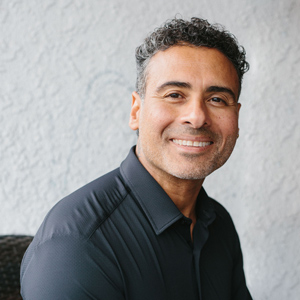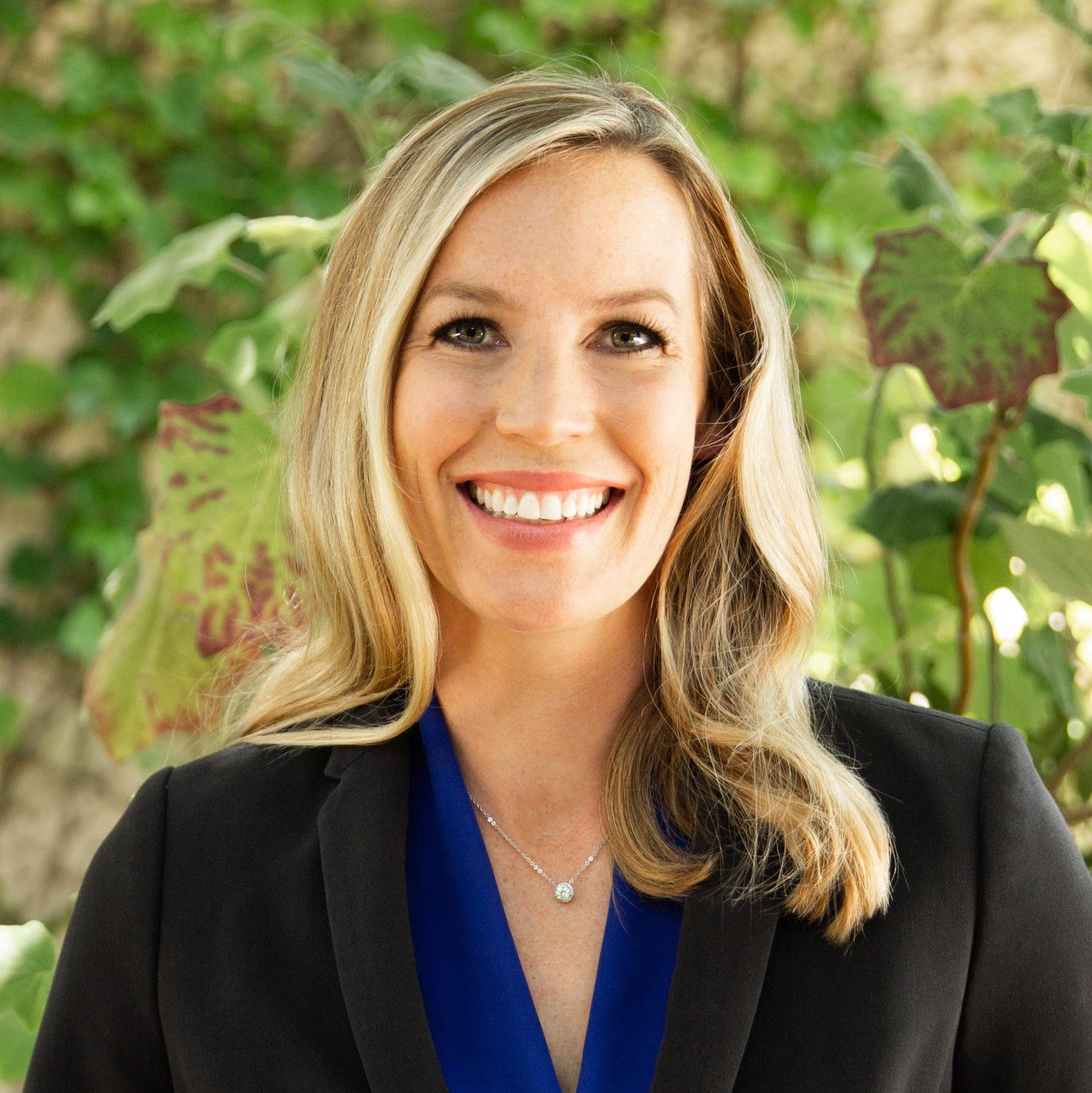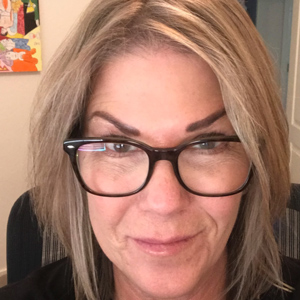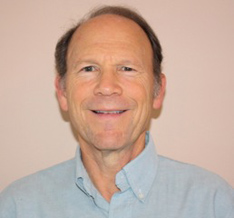MA in Clinical Psychology, Somatic Psychotherapy
Somatic Approach: Connecting the body, mind, and spirit in psychotherapy.
Antioch University Santa Barbara’s MA in Clinical Psychology with a concentration in Somatic Psychotherapy prepares you to become a licensed MFT with a specialization in the leading-edge holistic approach of somatics. Somatic psychotherapy is a therapeutic approach embracing the interconnection between the body, mind, spirit, and connection to oneself, community, and environment. Somatic approaches address the mental and physical responses to psychological disorders, including post-traumatic stress disorders, developmental trauma, depression, anxiety, attachment disorders, and a vast range of life issues. Somatic approaches draw from scientific evidence that feeling, sensation, expression, movement, and emotions are a unified experience and embodied through the course of development in patterns impacting how we function, including how we relate to ourselves and others. Through an exploration of what is embodied, including body sensation, posture, and expression, somatic psychotherapists help clients explore and shift relational patterns and alleviate symptoms of trauma and stress to enhance well-being. As the demand for training and specialization in somatic therapy has surged, graduates of AUSB’s Somatic Psychotherapy programs acquire applied tools for integrating traditional and contemporary psychological perspectives with the most advanced scientifically based somatic approaches.
Program Overview
"For real change to take place, the body needs to learn that the danger has passed and to live in the reality of the present." - Bessel Van der Kolk
Antioch University Santa Barbara’s MA in Clinical Psychology with a concentration in Somatic Psychotherapy dives deep into this unique psychological approach to the self through an integrated body-mind lens while teaching practical skills that can be applied within various theoretical modalities and populations. Our educational model is highly experiential, delivered through a combination of presentation group exercises, interactive role-play, audio-visual, and readings, bringing together a wide range of theoretical models with state-of-the-art professional experiential training.
Courses for the 12-unit concentration are dispersed over the 8-quarter program.
Additional Information
Licensure Information
This program is designed to lead to state licensure.
Additional Licensure Information
Requirements for the MA in Clinical Psychology, concentration in Somatic Psychotherapy
- Students in the MACP Latinx Mental Health concentration are also eligible for the concentration in Somatic Psychotherapy. These students will receive an MA in Clinical Psychology with a concentration in Somatic Psychotherapy and Latinx Mental Health.
- All graduates of the MA in Clinical Psychology program meet the educational requirements for California licensure as a Marriage and Family Therapist.
- Introduction to Theories and Techniques of Somatic Psychotherapy (3 units)
- Somatic Approaches to Trauma and PTSD (3 Units)
- Movement, Mindfulness, and the Expressive Arts in Somatic Psychotherapy (3 units)
- Practicum IV - Integrating Clinical Skills, Somatic Focus (3 units)
The courses are immersive, and the learning environment is experiential, combining theoretical learning with bodywork, including movement and applied somatic practice. Courses are offered in person and remotely.
Expert Faculty
AUSB’s Somatic Psychotherapy programs are taught by faculty who are well-respected experts in the field of somatic therapy and other holistic therapeutic approaches. Students will learn from active professionals who are thought leaders, teachers, and practitioners with decades of experience.
- Rick Lepore, MA, MFT, RMST, Clinical Faculty, Director of Somatic Concentration, is both a Licensed Marriage and Family Therapist and a Registered Somatic Movement Therapist. He has taught somatic courses at the AULA MAP Low Res program, USABP On The Move, and Tamalpa Institute. He studied dance and somatic movement with Anna Halprin, is a graduate of Tamalpa Institute and The NeuroAffective Touch Institute, and earned a certificate in psychoanalytic psychotherapy. He specializes in body psychotherapy in his private practice.
- Rachele Moskowitz, LMFT Rachele Moskowitz, LMFT, is Clinical Faculty and Director of Clinical Training in the MACP program (Masters of Arts in Clinical Psychology). Rachele has 15 years of clinical experience and a combined experience of 12 years in research and teaching. As an instructor in MACP since 2017, Rachele is enthusiastic about engaging students and actively participates in enriching curriculum and further developing the program’s specializations. As a clinical practitioner, she works with a diverse population of clients specializing in the treatment of complex trauma and closely follows the field of interpersonal neurobiology as it pertains to the ways in which psychotherapists can incorporate relational neurobiological concepts into their work. Rachele possesses a Integrated Somatic Trauma Therapy certificate and is an EMDR Certified Clinician. She is also passionate about the promotion of social justice and anti-racist therapy in the field of clinical psychology and in the training of future mental health professionals. Rachele attained her MA in clinical psychology with an emphasis in marriage and family therapy from Antioch University. Her BA in Psychology is from Duke University. Rachele has taught a range of psychology courses at Antioch and the University of California Santa Barbara in clinical skills, relationships, theory, trauma, and career counseling. She is an active member of the EMDR International Association, CAMFT, Santa Barbara CAMFT, the Postpartum Health Alliance, and the Humanitarian Assistance Program.
- Victoria Stevens, PhD, is a licensed clinical psychologist, psychoanalyst, researcher, and educator with specialized certifications in hypnosis and the treatment of victims and perpetrators of violent crimes. She studied interpersonal affective neurobiology with Allan Schore for more than a decade and is a founding faculty member of the California Institute of the Arts Teaching Artist Training Program.
- Jasmine Yahid, LPCC, R-DMT, holds a BA in Psychology from UCLA and a Master of Arts in Mental Health Counseling with a specialization in Dance/Movement Therapy from Lesley University in Cambridge, MA. She is a Licensed Professional Clinical Counselor (LPCC) and Registered Dance/Movement Therapist (R-DMT). My clinical background is broad and includes experience working with clients with eating disorders, complex trauma, mood disorders, personality disorders, and psychosis. My experience extends through all levels of care, and I currently work in outpatient private practice. My approach as a clinician is psychodynamic and trauma-informed, integrating somatic and experiential-based work and empirically based approaches such as DBT, ACT, and CBT. I am BIPOC allied and LGBTQIA+ affirming. I advocate from a lens of fat positivity, anti-racism, health at every size, and anti-diet culture. I am constantly striving to broaden my knowledge and growth in the field through curiosity, collaboration with other clinicians, following research, and creative expression with clients.
- Anna Morgan-Mullane, DSW, LCSW-R- Dr. Anna Morgan-Mullane obtained her Master’s in Social Work from Fordham University and her Doctorate in Social Welfare from NYU Silver School of Social Work. She utilizes Somatic Attachment Therapy and Somatic Experiencing – which is described as a gentle approach to healing trauma that helps to restore our bodies' natural ability to self-regulate, transforming trauma responses such as flight/flight/freeze/appease into renewed trust, peacefulness, and social engagement. These practices aid individuals in listening to the necessary information stored in their bodies about past traumas, current strengths, and resilience. Her therapeutic practice offers powerful tools to explore the impacts of trauma resulting from systems of oppression (racism, sexism, homophobia, transphobia, etc.) while simultaneously supporting a personal process to change the oppressive systems we are a part of.
- Stephanie Morgan, EdD, LMFT Dr. Stephanie Morgan is a licensed marriage and family therapist in the state of California, an AAMFT-approved supervisor, a certified intuitive eating counselor, and holds the Level I Accelerated Experiential Dynamic Psychotherapy (AEDP) designation, which is somatic psychotherapy. Her educational background includes a bachelor’s degree in human services, a master’s degree in counseling psychology, and a doctorate in educational leadership and psychology. She began her career in the helping professions in 2006 and has a diverse background of experiences working with adults, children, and families both directly and indirectly in acute, outpatient, and managed care settings. As a clinician, she uses an integrative approach to psychotherapy, informed by psychodynamic theory, and builds skills-based approaches and the somatic foundations of AEDP, depending on the client's needs. Her research interests include body awareness and mindful movement, medical trauma and the weaponization of bodies/body size, and the usefulness of psychodynamic approaches and the accompanying experiences of clients.
Faculty Spotlights

Reymon Ethnasios,EdD, LMFT
Faculty

Whitney J. Detar, PhD, BCBA-D
Core Faculty and Director of Faculty Support

Donna Ackerman, PsyD, LMFT
Adjunct Faculty

Andrew Teton
Adjunct Faculty
Admissions
Application Deadlines
| Term | Priority Deadline | Final Deadline |
|---|---|---|
| Fall | February 1 | July 15 |
| Spring | August 1 | January 15 |
| Please review the Academic Calendar for additional details. | ||
Application Requirements
How to Apply
For the MACP concentration in Somatic Psychotherapy, please see admissions information for the MA in Clinical Psychology.
Cost
| Item | Cost |
|---|---|
| Tuition Per Quarter Unit | $776 |
| Quarterly International Student Fee | $200 |
| All Students-General Fee, (technology, electronic library, student activity) | $100 |
| Program Materials fee (first quarter only) | $30 |
| Tevera® Clinical Training Software Signup Fee | $220 |
| MACP Program: Quarterly Liability Insurance Fee | $15 |
| Late Registration Fee | $100 |
| Transcript/Transcript & Assessments Fee | $10/$15 |
| Late Payment Fee | $50 |
| Return Check Fee | $50 |
| View the Cost of Attendance Components | |

Start your Antioch Journey
Take your next step - talk to our admissions team to find the right program for you.
